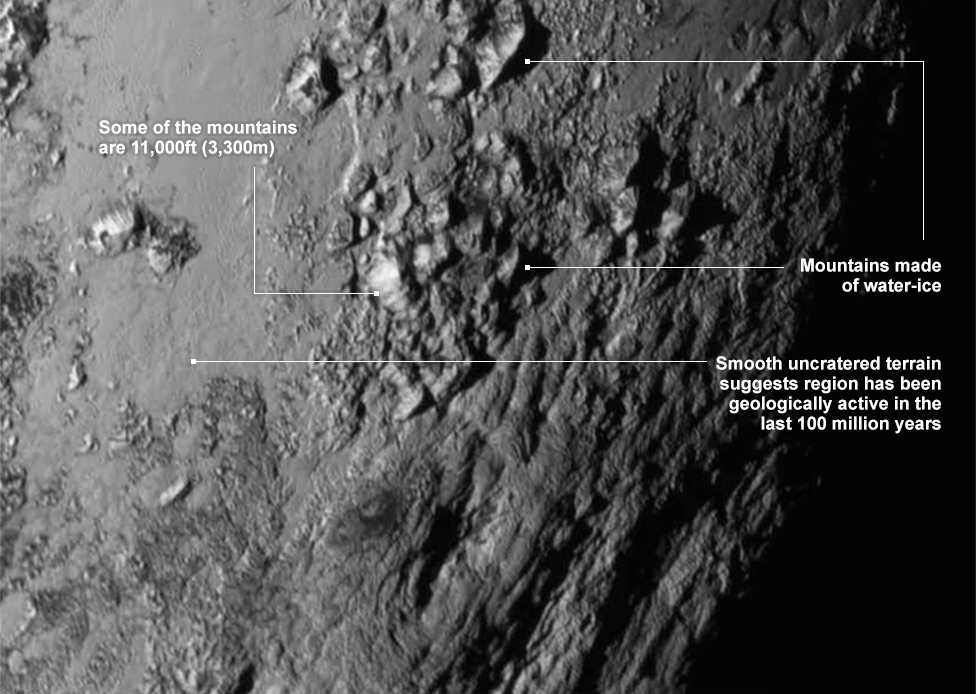#OTD of Pluto& #39;s demotion from planethood, let& #39;s talk about why everyone& #39;s favorite non-planet was slighted so badly.
I know, I know. Bear with me for a minute.
#scicomm #PlutoDemotedDay #astronomy
1/x
I know, I know. Bear with me for a minute.
#scicomm #PlutoDemotedDay #astronomy
1/x
To understand Pluto& #39;s demotion, we first need to understand what a planet *is* (as defined by the @IAU_org).
And before THAT, we need to know why astronomers needed a formal definition of a planet in the first place.
Long story short: it was getting a lil crowded out there. 2/x
And before THAT, we need to know why astronomers needed a formal definition of a planet in the first place.
Long story short: it was getting a lil crowded out there. 2/x
Pluto was discovered in 1930 by Clyde Tombaugh. At first, people thought it was possibly bigger than Jupiter (HAH), but it quickly became clear that it wasn& #39;t even the size of our Moon.
But it was large, & it was the only thing we knew of beyond Neptune for SIXTY YEARS. 3/x
But it was large, & it was the only thing we knew of beyond Neptune for SIXTY YEARS. 3/x
It wasn& #39;t til 1992 that we found another thing out there, the 2nd object in what we now know as the Kuiper Belt.
But this thing, called 1992 QB1, was small. Pluto obvi reigned supreme https://abs.twimg.com/emoji/v2/... draggable="false" alt="➡️" title="Pfeil nach rechts" aria-label="Emoji: Pfeil nach rechts"> it stayed a planet.
https://abs.twimg.com/emoji/v2/... draggable="false" alt="➡️" title="Pfeil nach rechts" aria-label="Emoji: Pfeil nach rechts"> it stayed a planet.
But then we found more things, & more things... 4/x
[credit: me]
But this thing, called 1992 QB1, was small. Pluto obvi reigned supreme
But then we found more things, & more things... 4/x
[credit: me]
And then @plutokiller found Eris. Until we actually flew by Pluto in 2015 with @NewHorizons2015, we didn& #39;t actually know which of the two was bigger.
And that started the dilemma that ultimately gave @plutokiller his handle: If Pluto is a planet, shouldn& #39;t Eris be one too? 5/x
And that started the dilemma that ultimately gave @plutokiller his handle: If Pluto is a planet, shouldn& #39;t Eris be one too? 5/x
I can bet you never learned the pneumonic My Very Excellent Mother Just Served Us Nine Pizzas Enthusiastically.
It got worse: then there was Haumea, & Makemake, & Sedna, & Ceres....
Not to mention the 70k other things also in the Kuiper Belt.
Where do we cut it off? 6/x
It got worse: then there was Haumea, & Makemake, & Sedna, & Ceres....
Not to mention the 70k other things also in the Kuiper Belt.
Where do we cut it off? 6/x
In 2006 the dilemma came to a vote, and there were some options:
1. Make Pluto/Eris/Haumea/Ceres/etc planets as well.
2. Keep 9 planets with no scientific rationale for why Pluto is there and the others aren& #39;t.
3. Create a new category for Pluto and the others.
7/x
1. Make Pluto/Eris/Haumea/Ceres/etc planets as well.
2. Keep 9 planets with no scientific rationale for why Pluto is there and the others aren& #39;t.
3. Create a new category for Pluto and the others.
7/x
As we know, option 3 won. And we now have concrete* criteria for declaring planets.
- Must orbit the sun.
- Must be round due to its own gravity
- Must have cleared the neighborhood of its orbit
Pluto fails this third criterion.
*still sorta hand-wavy
8/x
- Must orbit the sun.
- Must be round due to its own gravity
- Must have cleared the neighborhood of its orbit
Pluto fails this third criterion.
*still sorta hand-wavy
8/x
What even is this third criterion?
Basically it means that there shouldn& #39;t be other objects in a similar orbit, other than ones there because of that object& #39;s own influence.
Pluto orbits w group of objects called plutinos that all complete 2 orbits for every 3 of Neptune& #39;s. 9/x
Basically it means that there shouldn& #39;t be other objects in a similar orbit, other than ones there because of that object& #39;s own influence.
Pluto orbits w group of objects called plutinos that all complete 2 orbits for every 3 of Neptune& #39;s. 9/x
"But what about Jupiter or Neptune Trojans?! They have the same orbit as those planets!"
The Trojan asteroids are there BECAUSE OF Jupiter& #39;s/Neptune& #39;s influence, not despite of. And that makes considerable difference!
10/x
The Trojan asteroids are there BECAUSE OF Jupiter& #39;s/Neptune& #39;s influence, not despite of. And that makes considerable difference!
10/x
So because Pluto (and the others) orbits *within* the Kuiper Belt, with a similar orbit as lots of other objects, it& #39;s considered a dwarf planet.
That definition is less than satisfying to a lot of people.
11/x
That definition is less than satisfying to a lot of people.
11/x
Pluto is no asteroid - it has surface geology, plate tectonics, volcanoes, & glaciers.
To a planetary geologist, it is a planet!
But the definition from @IAU_org, the authority that names & designates planetary things, focuses on how things behave rather than how they look 12/x
To a planetary geologist, it is a planet!
But the definition from @IAU_org, the authority that names & designates planetary things, focuses on how things behave rather than how they look 12/x
And THAT is why, sixteen years later, the debate still rages inside and out of the scientific community.
I don& #39;t know that we& #39;ll ever truly come to a consensus. But even if Pluto isn& #39;t officially considered a planet, it& #39;s still an amazingly interesting, complicated world! 13/13
I don& #39;t know that we& #39;ll ever truly come to a consensus. But even if Pluto isn& #39;t officially considered a planet, it& #39;s still an amazingly interesting, complicated world! 13/13
lol *fourteen years, I can math I promise

 Read on Twitter
Read on Twitter



